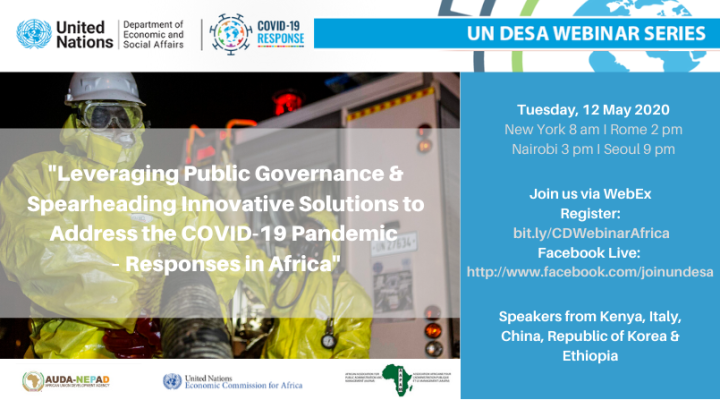
As is well known, COVID-19 has reached many African countries. African countries have to quickly move from COVID-19 readiness to response as confirmed cases appear. Governments and health authorities across the continent are striving to limit widespread infections . Yet, more than 40% of the population in Africa lives below the global poverty line and many cannot afford testing toolkits. A high number of people in African countries will become unemployed as most of them are employed in the primary industry and tourism. Many Africans in urban areas live in slums with high population density and without good water and sanitation services, which can contribute to the spread of the virus. The large youth population, coupled with community-based livelihoods and religious practices of mass gatherings, make it difficult for governments to limit the movement of persons by implementing lock-down and social distancing policies. Many African countries also lack the capacity to produce or procure basic medical supplies such as masks, sanitizers, ventilators and other personal protective equipment (PPE).
Among 47 countries in the World Health Organization (WHO) African region, nearly 60% are reporting COVID-19 cases in multiple locations compared with around 21% two weeks ago . African countries have a rapidly closing window to manage the crisis. Thus, it is urgent for governments in the region to take swift action to get prepared and respond to the COVID-19. Effective public governance, based on whole-of-government and whole-of-society approaches, is essential for countries to effectively and rapidly mobilize actions at all levels through participation of all stakeholders, including the private sector, the youth, faith-based organizations and civil society organizations. National to local coordination is also essential to effectively deliver services, particularly in the health sector. Digital technologies can be deployed to enable effective, timely, and inclusive government responses to COVID-19 at national and local levels. These technologies can expedite health diagnosis and outbreak situation analysis; foster evidence- and data-based decision-making processes by governments; facilitate emergency communications and real-time information sharing; and assist delivery of government assistance to all, including vulnerable groups, while minimizing human contacts. Read more
 Добро пожаловать в ООН!
Добро пожаловать в ООН!